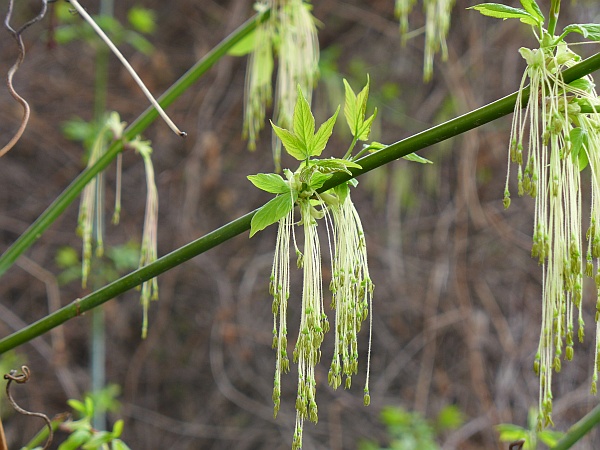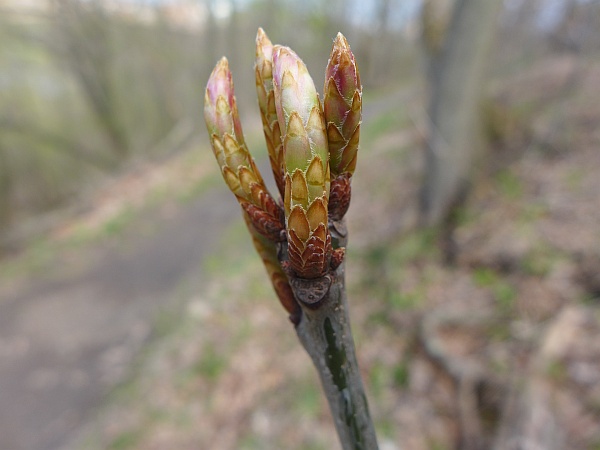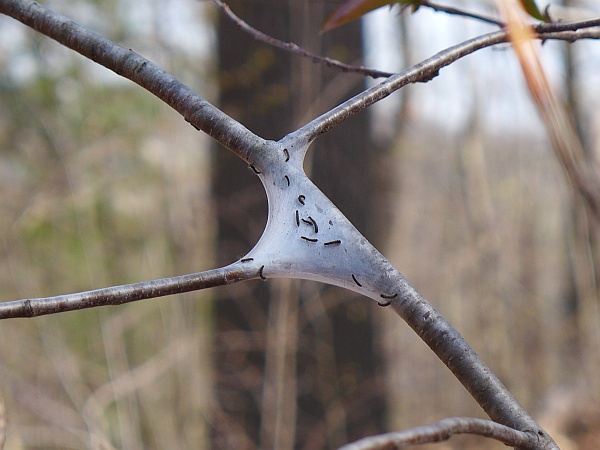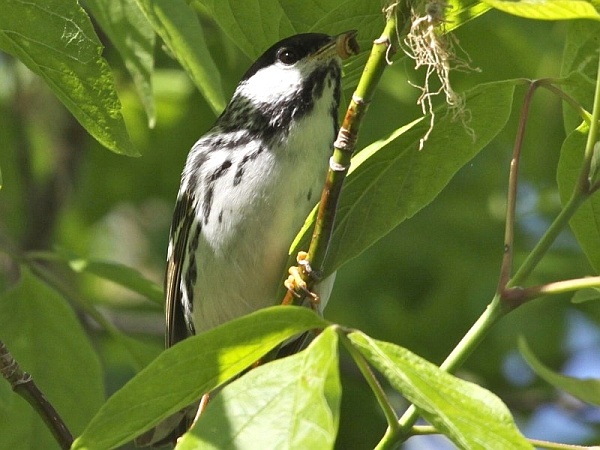
Warbler migration is ramping up and we’re already craning our necks to see them. Up to now it’s been easy to find birds in the leafless trees but that’s about to change.
In Schenley Park the box elders burst into flower and leaf last week (above), the Norway maples opened last weekend, and the oaks and hickories are blooming now.
Here’s a red oak twig on April 19 just before the buds burst. Who knew they could grow so long!

Inevitably the warblers gravitate to the leafy trees where they’re hard to find, prompting the common complaint, “The leaves are hiding the birds. I wish the leaves weren’t there!”
But if the leaves weren’t there, the birds wouldn’t be either.
Insects time their egg-hatch and larval growth to take advantage of leaf out. These tentworms appeared in Schenley Park when the choke cherries opened their leaves.

Leaf out brings insects. Insects bring warblers. It’s a symbiotic relationship between birds and trees.

The trees are probably happier than we are to see the warblers arrive.
(tree photos by Kate St. John. Blackpoll warbler by Chuck Tague)